#Being surrounded by queer people will make you do some healthy questioning of your assumed heteronormativity even of yourself
Text
Okay but it will give me life if Imogen gets to say "I'm bi actually" in the next season and them have nick give her the biggest hug and then they're bi4bi bffs forever and ever and
#heartstopper#heartstopper spoilers#I adore this girl#And I actually don't care if she ends up queer or just does some questioning and determines she's straight#Bc that's also an experience#Being surrounded by queer people will make you do some healthy questioning of your assumed heteronormativity even of yourself#If you come out the other side of that straight it's still important work#BUT#I've been saying since s1 I wouldn't be surprised if she is queer and I would ADORE that too#And her and nick being the best of friends gives me life#I saw someone post that they wanted her to end up alone and happy at the end of s3 and I kind of adore that#Like she figures herself out not through a relationship but through having supportive friends#And then choosing to be alone#God this show is everything
126 notes
·
View notes
Text
All the morons trying to claim that Dean wasn't saying anything to Cas because he was holding back slurs or something equally ridiculous... what show have you been watching? Surely not Supernatural. Like, yeah, Dean had some internalized shit for a while (mostly cause of how he was raised, let's be real), but this isn't season fucking one. Dean's in his goddamn forties now guys.
But you still think Dean Winchester is homophobic? Let's examine the evidence then, shall we?
1. Aaron Bass: Dean was flustered because he's not used to being hit on by dudes, but he was completely respectful. And he was alone, too. It wasn't like he was trying to "hide his homophobia" from Sam. He could've said whatever he wanted in that moment without anyone ever knowing, and he chose to awkwardly walk backward and wish Aaron a nice day. Then later, when they're working with him, Dean says nothing about it (other than a quick "he was my gay thing" to Sam), doesn't make it weird, and talks to him exactly the same way he would talk to anyone else.
2. Jesse and Ceasar: Dean's surprised when he realizes that they're married, again because he's not really used to it and so he made the wrong assumptions (which I will point out is really really normal, it happens all the time even between queer people, because heteronormativity is very much a thing in real life). But what does he do when he finds out? He asks them about their marriage - with genuine curiosity. What's it like to be in a relationship with a hunter, is it hard, all that jazz. Never asks about the fact that they're both men, none of those gross "so who's the woman" questions, literally just. Talking to two married hunters. That's it. Then later, when they're working, he never once questions their capability as hunters or suggests that they're weak in any way. There's no "you're less 'manly' because you're gay" mindset at all. And at the end of the episode he's genuinely happy for them, two hunters who managed to get out of the life and retire together.
There's lots of other examples (several male cops have been obviously into him over the years, his reaction to Jody talking about Claire and Kaia, all the subtext surrounding Lee, etc.) but for my last one for now, let's not forget...
3. Charlie fucking Bradbury: Arguably Dean's best friend besides Cas (no I haven't forgotten about Benny, I love Benny, but he was part of a very specific chapter of Dean's life and that chapter is done). We've known she was a lesbian from the get-go, and Dean takes it in stride when he finds out, immediately improvising to coach her through some painfully awkward flirting so she can get into the office ("you've just come home, and Scarlett Johansson is waiting for you"). And yes, there's the whole "I feel dirty" "yeah so do I" bit there, but that's clearly established as a joke, plus the guy was gross - as someone who is attracted to both women and men, I would feel dirty after flirting with him too.
The next few times we see Charlie, she and Dean are geeks and dweebs together, Dean is having more fun than we've seen in years, and we see him be a really good friend - in some ways, a better friend than he is to Cas. Charlie talks to him a little bit about girls, they LARP, they go shopping together, Dean comforts her when she has to let go of her mom. When she's killed, he gets so upset he goes on a murderous rampage (maybe not the most healthy way to deal with greif, but nonetheless showing how much she mattered to him). When he sees an alternate version of her in trouble he's immediately ready to risk his own life to help her even though she doesn't know him. He loved her like a sister, and he never once expressed any issues with her sexuality.
So let's go back to Cas. Cas is in love with Dean. Not much of a surprise there, he's said it before. But this is the first time Dean understands that that's what he's saying. It makes sense that he's a little stunned, especially considering that Cas is also saying that he's about to die. I mean, if your best friend of twelve years told you one day that they've been in love with you all along, that just knowing you has irrevocably changed them for the better, and that also by the way telling you this means they're going to die, mightn't you be rendered a tad speechless?
Dean does not hate Cas for this. Not at all. Because whether or not Dean is bi, whether or not he reciprocates, Cas is still his best friend. We've seen how hard Dean grieves every time Cas dies. We know how much Cas matters to him. Of all the shit they've put each other through, there's absolutely no logical reason for this to be the thing that damages their friendship beyond repair. Not after everything. No fucking way.
Dean says nothing because he doesn't know what to say, because he's still processing Cas's confession but also already grieving and blaming himself for Cas's death. The way he breaks down at the very end of the episode? That's not a man who's disgusted. That's a man who's shattered.
How dare you try to simplify this incredibly complex and emotional moment into Dean being a dick. How dare you. It's positively insulting. The entire point of Cas's speech was that Dean is so much more than that. If you can't see that, than I'm sorry, but you're missing the whole message of the show.
Supernatural is about family and sacrifice. It's about free will, making your own choices. And it's about being more than just who you're supposed to be, going beyond what other people want or assume. All the depth beneath the surface. That's the show. That's why we're still watching after all this time. Because it means something important. Something relevant. Something real.
Don't you fucking discredit that.
(thank you for coming to my TED talk)
#sorry there's not a keep reading button I typed this on mobile#sidenote: lowkey cannot BELIEVE i typed this all out on mobile#analysis#spn 15x18#15x18#15x18 despair#supernatural#supernatural s15#supernatural fandom#spn#spn spoilers#s15 spoilers#supernatural spoilers#dean x castiel#cas x dean#destiel#cas loves dean#it's canon#episode analysis#castiel#dean winchester#dean is complex#complex characters#supernatural season fifteen#thank you for coming to my ted talk#charlie bradbury#charlie and dean#dean and charlie#that friendship is amazing
2K notes
·
View notes
Text
The TJLC Debacle: 3 years out from S4 and counting; the copyright mini-theory; so much salt I’m bloated; but in the end, there is peace (I love you Johnlockers)

Ugh, don't even talk to me about Mary.
Don't even talk to me about the way Mofftiss have said they're sick of responding to fans on the subject of Johnlock. Of how they've said they're "not telling anyone else what to think or write about them" (as if they could stop us; as if they even own Sherlock themselves. Do keep reading, because this point becomes much more relevant and in-jokey later on). Don't even mention how they've bitched and whined incessantly because--god forbid--fans got *really really* into their show and emotionally invested.
They're so eager to discount all the beautiful little moments they wrote as accidents. And Arwel, who planted all those props, continually demonstrates that he's on their side (a not-very in-depth-analysis of his Instagram account and the way he interacted with fans towards the beginning of the pandemic showed as much, but I think maybe he’s grown a bit wiser and quieter since at least in terms of Johnlock and all things elephant-related. I don’t know for sure because I stopped looking.)
Anyway--they'd actually prefer for us to celebrate our own intelligence, is I suppose a charitable way of looking at it: our ability to make connections between things in the show; our metas on symbolism; our insightful fanfic; etc., and denounce them as the bad writers that they ultimately are.
More under the cut.
(This post may be of interest to you especially if you came to the fandom a bit later: multiple links to things of relevance/quotes/explanations appear both within and at the end of this entry.)
Because what makes a writer good?
Well, an ability to make people feel an emotional connection to their work, for one. I know this is just my own perspective, but if not for Johnlock, all my emotion about the show would evaporate. There wouldn't be much else there. Other people might get something, but I wouldn’t. Is some of the writing witty and entertaining regardless of any inferred/implied Johnlock? Yeah but, eh, a lot of shows have some good writing and I just don’t give a damn about them.
What makes a writer good?
Not making promises to the reader/viewer that they'll never keep. Plot holes, leading dialogue ("There’s stuff you wanted to say...but didn’t say it.” “Yeah”) never followed through on, puns that are apparently, I suppose, unintentional (e.g. "'Previous' commander?" "I meant 'ex'").
Uh, not writing continual gay jokes that aren't actually pointing toward the inference that people are making them because there's actually something going on there under the surface. (How about just don't make those jokes ever.)
Not being, apparently, oblivious (? questionable) to the queerbaiting they're engaging in *as they’re writing it.*
Acting like their LGBT audience is in the wrong/the bad guy, instead of choosing to remain respectful in the face of dissent. Instead it's just, "we never wrote it that way" / "We never played it that way."

A lot of those other mildly witty shows don’t actually blatantly drag their most passionate fans face-down through the mud the writers themselves created. Imagine that.
I'm not even a fan of Martin Freeman anymore, for the way he handled the whole thing (getting angry, the comments he made about how the fans made Sherlock “not fun anymore”...apparently Martin’s packing up his crayons and going home?)...no offense to anyone who is still a fan of his. I don’t make it a habit to drag him. I do to some degree understand his frustration with having the whole situation taken out on him--he’s just an actor in the show--but I simply wish he’d remained as cool and professional about it as Benedict Cumberbatch instead of pointing at the fans. You’re pointing in the wrong direction, mate.
What also irks me at the end of the day is this: the subsection of people who legitimately responded badly to the TJLC/S4 debacle and went above and beyond to harass the writers and actors/actresses on social media are *few and far between*, but we've been lumped in with them by what feels like...everyone, Martin included. TJLCers/Johnlockers (not the same group, but often treated as such) have been made to look like a bunch of rambunctious, immature, demanding children time and time and again in the wake of S4.
They'd rather, what, suggest John was so in love with Mary? THAT was the relationship they wanted to uphold in that show as so significant and...what, a demonstration of how honorable it is to respect your heterosexual relationship despite, you know...ANYTHING?
Yeah sorry, I don’t believe in that. John’s text-based affair, whether a disappointment for some as to his supposed character, was a very human reaction and I kinda sorta feel like I would have reacted MUCH more strongly than that had I been John. But nope. He stayed with Mary and was *ashamed* of his wandering eye. Ashamed that maybe he wanted to be admired by someone. I can’t think of a scene, off the top of my head, where Mary ever interacted with John without belittling him in some way--if not with words, then with consistently patronizing glances.
The message here is that heterosexuality is not just acceptable, but VALUABLE, however it manifests--but god forbid anyone see a queer subtext. (Why are lgbt+ writers some of the very WORST offenders where this is concerned? And they defend it! Is this childhood nostalgia/Stockholm Syndrome of the very fondest variety or what? Gay angst is all they got if they got anything at all, so it’s still good enough as far as “representation” goes?)
They really want to tell the story of John as so emotionally/mentally fucked up that he surrounds himself with unstable people time and again. They never give any reason *why* he might do that (which they could have done even soooo subtly), or delve into his past--just, apparently it's okay to assume that Sherlock's comment about "she's like that because you chose her" is exactly that.
No. Sherlock and Mary are NOT the same. Not...*remotely*!
Mary is underhanded and evil. She lies. She manipulates. She schemes. Her “love” is based on selfishness, and her assumption that John is a simpleton and hers to mold. She's in it for herself.
Sherlock hides. He prevaricates. He feels. He loves John. He does fucked up things in the name of love, but always for the benefit of those he loves. When he screws up, which he obviously does, it’s painful to us as the audience because we see that it is painful for him when he recognizes and regrets it.
I have never seen Mary regret anything. Those crocodile tears at Christmas? More manipulation. Inconsistent with anything else we were shown about her as a character.
To even think for a SECOND that people could ship Mary and John and mentally condemn John for cheating on Mary AFTER SHE SHOT HIS BEST FRIEND...as if marriage is the be-all-end-all free pass in which every sin must be forgiven until the end of time...as if John broke any covenant with his wife beyond those she broke from the very moment she walked into his life *with an entire fake past.* Is just. Well. It's asking us to accept gaslighting as healthy, loving, normal, *preferable* behavior, so...given the source that message is coming from, it's all a bit meta.
THAT. Is insanity. Maybe Mofftiss are the sociopaths.
How these men could write characters they themselves understand so little (or tell us they understand so little because their emotional maturity has yet to surpass that of the average three-year-old’s), I will never know. I can only imagine that they have absorbed, by osmosis over their lives, real and nuanced human behavior...then churned it back out again in their writing unaware, a bit like psychopaths who teach themselves what "normal" people do so that they can pass as psychologically sound in regular society.
Remember, we *are* talking about men who do these sorts of things:
Moffat says that Sherlock is celibate and that people who claim he's misogynistic when he does things like make Irene Adler imply she's attracted to the detective (even though she's a lesbian) are, ironically, "deeply offensive" (despite lines like "look at us both" in Battersea. We aren't your therapists, Moffat--we don't care what you meant, we care what you said, and what you *said* was clear. *Implying* it does not let you off the hook).
Gatiss has proclaimed that "I find flirting with the homoeroticism in Sherlock much more interesting" than the idea of ever making a show addressing LGBT issues. (That link is to a reddit forum, and I can't find the original interview anymore, but I assure you I had seen the actual article myself ages back and can't find it online again now along with some of the Martin quotes I wanted to link to. And nevermind what Gatiss has done with LGBT shows/issues since--my focus here is on what he has said, versus what he and Moffat have since claimed regarding their queerbaiting.)
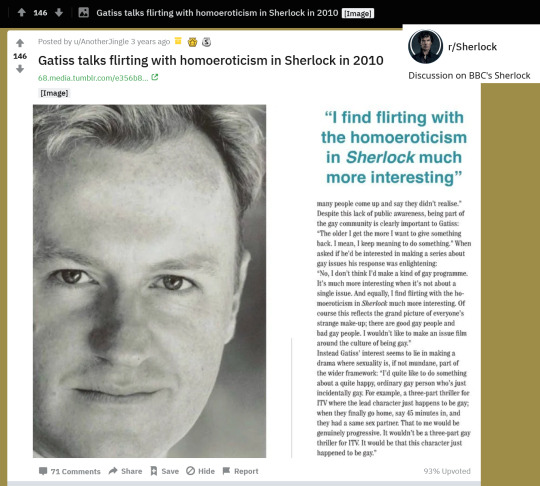
Here’s a transcript of this screenshot:
"...many people come up and say they didn't realise." Despite this lack of public awareness, being part of the gay community is clearly important to Gatiss: "The older I get the more I want to give something back. I mean, I keep meaning to do something." When asked if he'd be interested in making a series about gay issues his response was enlightening:
"No, I don't think I'd make a kind of gay programme. It's much more interesting when it's not about a single issue. And equally, I find flirting with the homoeroticism in Sherlock much more interesting. Of course this reflects the grand picture of everyone's strange make-up; there are good gay people and bad gay people. I wouldn't like to make an issue film around the culture of being gay."
Instead Gatiss' interest seems to lie in making a drama where sexuality is, if not mundane, part of the wider framework: "I'd quite like to do something about a quite happy, ordinary gay person who's just incidentally gay. For example, a three-part thriller for ITV where the lead character just happens to be gay; when they finally go home, say 45 minutes in, and they had a same sex partner. That to me would be genuinely progressive. It wouldn't be a three-part gay thriller for ITV. It would be that this character just happened to be gay."
--End article quote.
And instead, who is canonically gay in the series? Well, Irene Adler. The innkeepers at the Cross Keys. And perhaps most notably, the *villains*, because that's a helpful trope: Moriarty and Eurus are, in S4, both implied to be at least bisexual.
Any character should be able to be any sexuality, this is true. But can we have some main characters, the good guys, give some good representation? Can't we start making that the standard, rather than the villains and the background characters? Because so far, that is the exception and not the rule.
Writers need to be aware of the damage they are perpetuating. We are not quite in a world yet where any character should be able to be any sexuality but isn't, yet we have no problem with saying the villain is LGBT+ or looks different/functions differently than much of the viewing audience.
"Male friendship is important and valid, not everything has to be gay"--this is a popular point with casual heterosexual viewers (and, to my chagrin, some of my LGBT+ friends) who don't fully grasp what "queerbaiting" is, often even when it's pointed out to them.
The lens of heterosexuality is real. My first time through watching BBC Sherlock, I didn't see the Johnlock at all. I had to look for it and read about it. When I saw it, the lens was lifted for me, and it changed my life and the way I view things forever (and for the best).
But back to my point about how little Mofftiss seem to understand their own story/most ardent fans, and then on to my other theory: in S4 it must be that they dropped their “psychopaths emulating empathy” act and indulged in their own "insane wish fulfillment" by doing away with all of the meaning, continuity, and sense. Right?
So, here’s the alternate theory. One which is not, please remember, in their defense.
Remember that S4 is what Mofftiss are *happy* to have us believe is what they'd do with these characters, given the chance to do whatever they wanted. I repeat, in Moffat’s own words: “Insane wish fulfillment.”
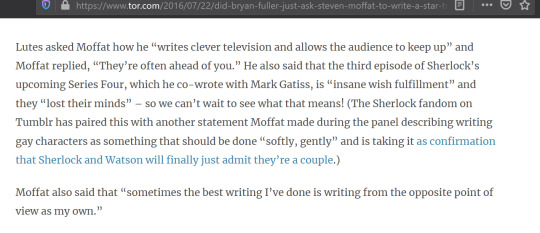
Okay I get it, this pasta has been over-salted.
Without further delay: MY COPYRIGHT RESEARCH THEORY THAT EVEN I DON'T PUT MUCH STOCK IN AND WHICH DOESN’T MAKE UP FOR THEIR CRUELTY EVEN IF TRUE
Part of me also raises an eyebrow at S4 as perhaps an example of the effect of the Conan Doyle estate on any modern production in the US. While it’s true that all of Sherlock is part of public domain in the UK and has been for quite a long time, Gatiss and Moffat still talk about it being partially under copyright. Specifically, the last 10 stories. I’m supposing that this means that because Sherlock airs internationally, or due to whatever contract the BBC has with the Doyle estate, they are still limited by the copyright as to what they can “publish”.
The Doyle estate is known for being a pain in the ass when it comes to abiding by copyright law as everyone else knows and practices it. They’ve tried to argue, for example (in 2013 and, much more recently, with the advent of Enola Holmes), that because Holmes and Watson were not fully developed as their final selves until the conclusion of all 10 stories still under copyright, then perhaps the characters themselves should still be protected, basically, in full.
It’s true that certain elements of the remaining stories are still under copyright here in the US (Watson had more than one wife--uh huh, we have that to look forward to, Johnlockers; the Garridebs moment is still under copyright--yeah, I’m getting to that too; and Sherlock didn’t care much for dogs til later so that’s not allowed either, fuck off Redbeard), but the estate’s problem in 2013 seemed to be based around a fear that *gasp* some day--if not right now!--anyone could write a Sherlock Holmes story in any way they pleased, changing the characters however they wished to and giving those characters “multiple personalities.”
See the following excerpt from the Estate’s case:
“...at any given point in their fictional lives, the two men's characters depend on the Ten Stories. It is impossible to split the characters into public domain versions and complete versions.”
(Click for full transcript.)
Obviously, by this point, that’s been done in multiple iterations. So I dunno. Their argument was *more* than muddy to begin with--they just grasp at straws to stay in control, it seems.
But okay. Backing up: wasn’t there sort-of a Garridebs moment in S4?!?? you cry. Yep. But imagine this: the Conan Doyle estate taking Mofftiss to court to argue that they depicted the Garridebs moment--a moment still under copyright--in The Final Problem.
Did they, though? Did they really?
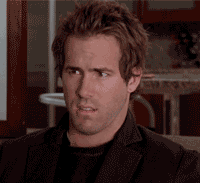
The fandom cried out about the ridiculousness--the utter disappointment--of that moment when it was shown. It was not what we would have expected/wanted. We didn’t see John injured, Sherlock reacting with tender outrage to the good doctor’s attacker.
Instead we saw some ludicrous BS that was as bad as the clown with the sword-gun-umbrella. More of that.

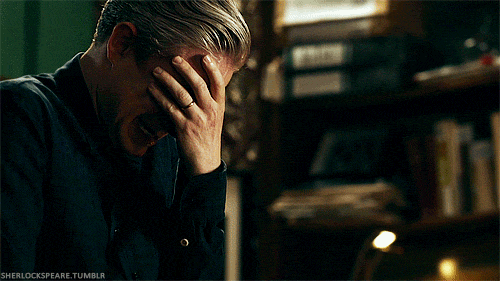
I think Martin probably found that it was easy to produce real tears when he thought about how fucking terrible the S4 scripts were.
Ahem. Yet, this all seems very Mofftiss-flavored in terms of humor.
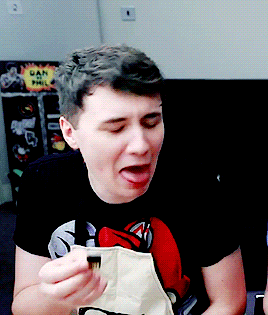
I can all-too-easily imagine them saying, “HA. We’re going to show some of these supposedly copyrighted things--and if they take us to court, they’ll be laughed out of the room.” Could that explain some of the overall S4 fuckery?
Sherlock wasn’t supposed to like dogs til later stories, as previously mentioned-- is that why Redbeard pulled a “Cinderella’s carriage” and transformed into a pumpkin (Victor Trevor)? Hmm. Sigh.
It...doesn’t actually appear that the estate has any qualms about taking laughable stuff to court, I mean...*shrug.* They have the money to do it, and money is the name of the game, because you’ve got to pay for rights (cha-ching sounds).

Yep, it does seem that the estate is open to the copyrighted materials being made reality, but who knows for what price or with what caveats. The BBC isn’t, so far as I’ve ever heard, known for throwing money around. Early Doctor Who would be so much less entertaining if they’d had any sort of budget. (And in fact, more of the older episodes would exist, but apparently the BBC--in part to cut costs--reused some of their tapes.)
My bottom-line bitter is this: Mofftiss do like to amuse themselves. To please themselves and no one else, as they’ve shown time and again. Sure, they could do whatever they wanted with S4...and they did...but they were also cruel about it, and that’s what I’ll never forgive them--OR the BBC--for.
A lot of fans gave up after series 4. I was very nearly one of them. I was angry, like just about every other Johnlocker and/or TJLCer, but I was really truly heartbroken. I couldn’t look at fanfiction. My days were full of bitterness and I keenly felt the lack of the fandom outlet that had become so essential to my mental well-being. I didn't know how to overcome the disparity between TJLC and what the show actually was. I didn't know how to separate the things I loved so much from the shitty writers and the way the BBC handled things with their whole response letter (that atrocious, childish blanket response they sent to everyone who complained about S4, not just the Johnlockers/TJLCers. Related to your complaint or not, if you filed one post-S4, this was the response you got). I still boycott BBC shows/merchandise, just by the way.
I tried to link to the blanket response letter but the link didn’t want to work (it’s an old reddit post; I had difficulty finding a copy of the letter elsewhere though at one point it wasn’t so hard...Google is weird these days y’all...tell me it’s not just me) so here’s a screenshot:
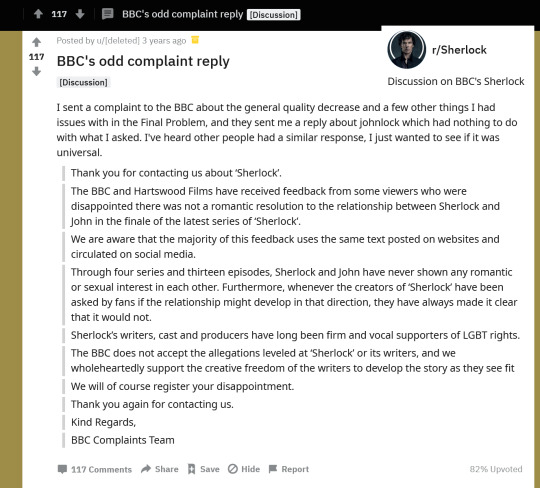
Transcript:
“Thank you for contacting us about “Sherlock”.
The BBC and Hartswood Films have received feedback from some viewers who were disappointed there was not a romantic resolution to the relationship between Sherlcok and John in the finale of the latest season of “Sherlock”.
We are aware that the majority of this feedback uses the same text posted on websites and circulated on social media.
Through four series and thirteen episodes, Sherlock and John have never shown any romantic or sexual interest in each other. Furthermore, whenever the creators of “Sherlock” have been asked by fans if the relationship might develop in that direction, they have always made it clear that it would not.
Sherlock’s writers, cast and producers have long been firm and vocal supporters of LGBT rights.
The BBC does not accept the allegations leveled at “Sherlock” or its writers, and we wholeheartedly support the creative freedom of the writers to develop the story as they see fit.
We will of course register your disappointment.
Thank you for contacting us.
Kind Regards,
BBC Complaints Team
So how about that? *Did* they “register our disappointment”? We can actually check that. The BBC’s website has a monthly summary of complaints received. So what did they receive in January 2017, the month S4 aired?

Huh, what do you know. Sounds like that blanket response was exactly the “fuck you” it came across as.
But the show--the FANDOM--had filled a need in my life, and so I had to own that and make it mine, or just...let something in me die: something that felt like an actual vital organ. I had to decide that these characters mean something to me beyond what anyone else tells me they should. I had to accept my own perceptions as truth, as I do with everything else in my life. I had to overcome the idea of canon as law (BBC Sherlock isn't canon anyway; ACD is canon. BBC Sherlock is, in the end, badly written fanfiction--or--worse?--decent pre-slash fanfiction distorted by consistent lies and the hazing of the LGBT audience, topped with the dumpster fire of S4′s incoherent nonsense).
I had to take the good and throw away the bad, just like anyone else who chose to stay. The good bits of the show...dialogue, yes. Plot points, yes. These awful writers did write some good stuff sometimes.
They just broke all the unspoken rules of what not to do to your audience. And then did and said everything they could not to apologize, and to justify their own failings. Which, in the years since I began shipping queer ships beyond any others, I have unfortunately experienced more than once.
So, my vulnerability has been yeeted into the vacuum of broke-my-trustdom: no one can tell me what things should mean to me. I will decide.
I decide that all of the FUCKING AMAZING writing in the Sherlock fandom is a staple in my life that makes it worth living. And that that's okay. And takes precedence over anything the writers or anyone else associated with the show could ever say or do.
Johnlock can not be taken away. It doesn't belong to them. It never did, even if they brought us to it. It belongs to us. To the group of amazingly creative, brainy, empathetic, resourceful, vibrant, resilient people who make up this fandom.
So thank YOU, all of YOU, for giving me Sherlock, Johnlock, and TJLC.
I am SO SAD for those who never found a way to make peace with this fandom again. Let me just say that I understand that inability entirely.
I am fortunate that I found the ability in myself to cling to the joy (something it has taken my whole life to be able to do). I hope others will who haven’t yet but wish they could.
Let Mofftiss and whoever sides with them stay angry and bitter and vicious, always looking over their shoulders for anyone who dares to whisper about subtext.
I’m proud to be part of what they’re whispering so angrily about.
Thanks for sticking it out if you made it this far. I know this was very self-indulgent and rambly.
Articles of interest:
A Study in Queerbaiting (Or How Sherlock Got it All Wrong) by Marty Greyson
“We never played it like that.” - Martin on Johnlock
Henry Cavill on the Enola Holmes lawsuit
More on that--and by the way Sherlock isn’t allowed to like dogs
The way Sherlock creators told fans Sherlock & John aren’t gay is so rude
Especially for those new to the fandom who may not know the distinction between TJLC and Johnlockers and want to know more about TJLC's evolution/what it is/meta through the years
Moffat's view on asexuality, offensive to me in particular *as* an asexual person (same article where he claims he isn't misogynistic): "If he was asexual, there would be no tension in that, no fun in that – it's someone who abstains who's interesting."
Yet he says Sherlock isn't gay or straight and that he's trying to keep his brain pure which is a "very Victorian attitude"
(Nice historical research there, Moff--actually the Victorians were sex-positive).
Sherlock fans were robbed of the gay ending they deserved
Benedict Cumberbatch has lashed out at his Sherlock co-star Martin Freeman over his negative attitude towards fans
BBC complaints January 2017
Martin Freeman: 'Sherlock is gayest story ever'
From 2016: UNPOPULAR OPINION: "Sherlock" Isn't Sexist or Queerbaiting; It's Actually Trying to Stage a Revolution
Queer-baiting on the BBC's Sherlock: Addressing the Invalidation of Queer Identities through Online Fan Fiction Communities by Cassidy Sheehan
#bbc sherlock#bbc sherlock salt#sherlock s4#sherlock holmes#acd#john watson#sherlock copyright#mofftiss#queerbaiting#johnlock#tjlc#johnlock fanfiction#fandom#writing#fandom life#sherlock fandom#tjlc fandom#johnlock fandom#sorry for the salt sometimes you just need somewhere to put it all#the bbc
36 notes
·
View notes
Text
Couple Theory
Name: Lucy
Age: 24
Location: Glebe
Occupation: Bush Regenerator
Sexual Orientation: Lesbian
Gender: Female
Name: Aisling
Age: 21
Location: Glebe
Occupation: Customer Service
Sexual Orientation: Queer
Gender: Female
Lucy – I feel like I’m still figuring out how I’m comfortable presenting because I didn’t come out till I was twenty, which was quite a time after I realised I was gay at sixteen. When I moved to Sydney I really wanted to show people that I was queer, and with much of my influence being from the internet, I wore a lot of the stereotypical lesbian clothing I saw on there – mostly sporty sorts of clothing – but as I’ve gone through, whenever I find something that I don’t hate myself in I wear it over and over again until something new comes along. Recently I’ve been vibing with the look of boots, singlet tops, and making my tattoos very visible. I make myself look somewhat unapproachable with my resting face being a frown, and my outfits being if not aggressive, then non-welcoming, but if people do actually come up to me I really want people to like me, so it all falls away.
Aisling – My daily presentation is just the easy T-shirts and jeans, lots of bouldering merch, maybe a button up if I’m being a little fancy, just a classic chapstick lesbian.
Lucy – Where did your inspo for that come from?
Aisling – What? Jeans and a shirt? Does that need inspiration? I guess I tuck my shirt in to make sure its queer? I have a lot of Vans, and a milk crate full of socks I guess. I used to save up money when I was in high school to put towards my first pair of Vans and I was so excited. I think I have twenty pairs now? Lots of converse, runners, and climbing shoes as well. Colourful socks and shoes are my thing I guess.
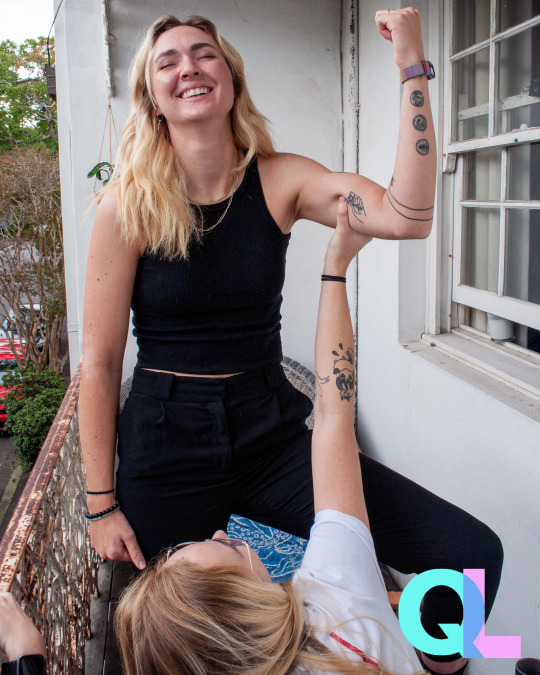
Lucy – I remember I was sixteen when I realised I liked girls, but I don’t know what triggered it. I think it was something on TV? I think it was an NCIS episode and they had a really awful portrayal of lesbians, who were identified as gay because at the end of the episode they held hands, and that triggered some kind of twinge in my chest that I’d never felt before.
Ailing – That was your gay bone
Lucy – My gay bone?
K – Yeah, your sternum is your gay bone
Ailing – I’ve torn that twice from being too gay
K – you need to remember to stretch before going out and being gay all night.

Lucy – It was a really weird feeling, I didn’t know what it was. I couldn’t stop thinking about it, so I went and found out about the episode, and it was of course one of those “oh no homosexuals are evil” sorts of plots. I think that negative portrayal contributed to my negative feelings about being gay, and being so scared to come out. I don’t know where else that would have come from because my parents never expressed any opinion about homosexuality. Those feelings were confirmed when I had my first crush on a girl in my school. I was nauseous more than anything when I realised it, and I just ignored that feeling for years which isn’t healthy. What helped me overcome it though, as I’m sure helped a lot of people from small towns with not much queer representation was the internet, and YouTubers, The Legend of Korra, and Tumblr. (The ending of Legend of Korra) was ust so beautiful, and so revolutionary as well. I remember seeing the ship of Korra and Asami come up on my tumblr, but it was years before the end fo the show, when it actually happened. I remember watching it on a family holiday trip and had to leave the dining table and I was shaking and crying because it was such a huge, beautiful moment that was probably one of the most significant moments of accepting myself. Looking back I definitely associate that final image of them holding hands before going to the spirit world together with my final stage of accepting who I am.
Moving to Sydney was my time to finally come out and explore. I came out to one of my Canadian exchange friends who was here, and they took me to Birdcage (lesbian nightclub in Sydney) where I met some of my friends. My first time in a queer club was like being surrounded by a family who I felt like I knew even though I hadn’t met any of them. That was also the year that the marriage equality vote was passed, So I took that opportunity to find out what my parents thought about homosexuality by asking them what they were voting for. They both said they were voting yes, which made me feel comfortable enough to come out to them the next week.
I’m still learning what are the most appropriate ways to describe myself and my relationship with myself, and how to present myself to the world. The more I learn, the more I will change the way I present myself, and there is a lot more of myself to explore.

Aisling – I think I was around thirteen or fourteen when I saw the show “faking it” - a show about a girl in high school figuring out her sexuality – and I just noticed that I was relating to every situation that the character was going through, and suddenly realised I was questioning my sexuality. I mentioned it to one of my friends that I used to walk to school with, and she would just keep egging me on with “come on just say it, just say you’re gay its fine”. I came out to her as bi at one stage, but I didn’t like that term, I didn’t like the term lesbian either, and still don’t, I prefer to think of myself as queer, or just gay.
When I actually came out two or so years later, I remember telling my close friend group that I was bi… and then later that week just said “nah I’m gay actually”. It was about 7:30pm, on a Wednesday night, after basketball, in the shower talking to myself saying “im gonna do this, im gonna do this”. Just me and my dad home, I psyched myself up for ages and then walked in and out of the kitchen about five times before going “Dad, I have something to tell you” sweating bullets “Dad, I’m gay la di da.”
Lucy – La di da?
Aisling – yes, Father, it’s la di da for me I’m afraid
Lucy – please put my sexuality down as la di da
Aisling – The first thing he said to me was “yeah I always thought you had a bigger obsession with the female tennis players than the men.” and yeah damn he had me there. I hate that I remember the day and everything… like the first of September 2016?
I moved out from my mum to my dad’s mostly because my mum’s partner at the time was very homophobic, and any dinner conversation would turn to him deriding gay marriage, or coming out with some racist shit. Eventually I decided “this bothers me too much, I’m going to have to say something” and it was… really upsetting when he didn’t agree. So of course I came out to my dad first and made him tell mum, which was then an interesting conversation…
“Your father tells me you’ve told him you’re gay?”
“yep, that’s it”
She contacted my school supervisor that night and told all of my teachers to look out for any homophobic acts towards me, letting them know that I was gay and to look out for me.
Lucy – I feel like together we tick a lot of stereotypes
Aisling – We really do
Lucy – We moved in together really quickly
Aisling – We own a cat together
Lucy – Theres that Subaru…
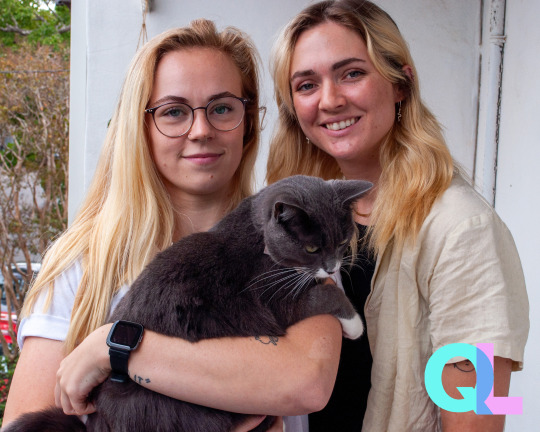
Aisling – I also had a lot of influence from those same queer YouTubers, and seeing their coming out videos and how free they felt afterwards made me really want to share it.
Immediately after I came out everyone at school was very supportive, like they already knew and assumed I was gay because I was just that sporty chick, so being gay just sorta went with it?
Lucy – I think I looked for validation from my parents. When I came out to mum there was no huge deal made about it, butI think validation from them comes in small snippets. Every time mum sends me something, like recently she arranged her coloured chopping boards into a rainbow and sent me a picture with “these are for you!” it’s very small, but its very significant. When I had a really big hickey on my neck, my dad said
“oh who gave you that on your neck? Does he sleep in a coffin?”
“it was a she actually”
“oh does she sleep in a coffin then?”
he just wanted to channel it into a dad joke, but it was a weird way to come out to him actually.
Aisling – To me the term Queer means “everyone included” even just an ally of the community, or a parent of an LGBT person doing your best to make them feel safe and welcome, you’re welcome in the community you know? By properly supporting something, you become a part of it.
Lucy – For me it’s very similar with those lines of community and family. It can be a label, but I feel that its evolving more into a term that indicates embracing all people. I use it sometimes to refer to a collective group of… well queer people. I refer to my close friends as my queer family.
Aisling – It feels better to use than assuming someone’s sexuality or gender without knowing the specifics.
Lucy – Individually I wouldn’t refer to any of my friends as queer. I know one friend refers to himself specifically as a bisexual, man, rather than a queer person. So I definitely like its a more family, community term, rather than a specific label, though It can still be used as one.
Aisling – I like the term because when I first came out I identified as bi, then gay, then bi, then gay, than they? And it feels more appropriate to use for myself because I’m still working it out, and it can cover a lot. For example I don’t think of myself as completely feminine, but I also don’t like the term non-binary to refer to myself, but the idea of “They” still, rather than just being she/her, I like the idea of she/they. And referring to myself as queer feels more of an accurate description.

Lucy – Ever since moving to Sydney and coming out and going to that first club night I’ve always thrown myself into as many queer events as I possibly could. I want to be able to contribute more to the community rather than just be involved in it, a lot of my friends are very engaged in the queer community, and I feel like I don’t have that level of involvement. I love that I’m never scared or intimidated to go to queer events, by myself or with my friends. Whilst I feel very connected to the queer community, I wish I could be more involved. I’m scared that since my friend group is all finishing university and looking to the future, that I’ll lose that sense of connection as everyone moves away, even though I’m sure we’ll all stay in touch.
Aisling – I feel little to no involvement in the queer community at the moment because I’m focusing so hard on my training. I’m involved with Queer Climbers Sydney though, and am looking to get more involved in the future, as soon as I have the time to do stuff.
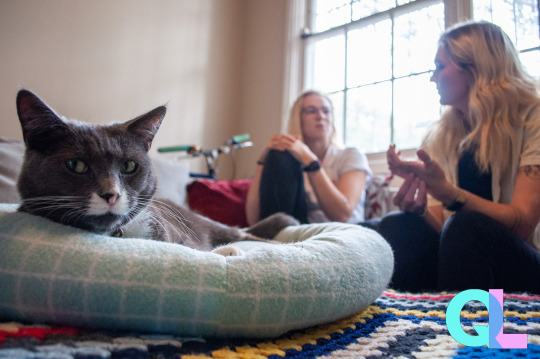
Lucy – Challenges facing the queer community here isn Sydney… I feel like we need to create a wider variety of safer spaces in more areas. There’re certain areas of Sydney where queer people I know just don’t feel as comfortable. And the ones we do have are always pubs and clubs. Not to detract from queer nightlife; but having so much of queer culture based around adult only areas reinforces the idea that being gay, or trans, or whatever is an adult thing, and makes it easier for people to excuse restricting education about it to kids, which can be so harmful growing up and not having the education to understand yourself.
Aisling – I feel like theres more acceptance towards gay, lesbian, and bi people. But there’s less of an acceptance of trans people, like they can understand being gay, but they cant seem to understand what a trans person even is, much less how to approach them. Probably need more education about it in schools. More comprehensive sex ed instead of just how to put a condom on a fucking banana.
full gallery on facebook
follow us on instagram @thequeerlook
please contact us if you would like to be involved
#lgbt#lgbtqiaplus#thequeerlook#the queer look#fashion#photography#couple#cute#girls#portrait#interview#identity#culture#cat
4 notes
·
View notes
Text
February 14, 2021: Brokeback Mountain (2005) (Part 1)
Happy Valentine’s Day!

Or Palentine’s, Galentine’s, Single Persons Appreciation Day, what have you!
Anyway, on this day where we (and the greeting card companies) celebrate love in all of its forms, I think it’s about time to diversify my movie choices a little bit. SO, for the next few days at least, we’re going to change it up, starting with a film that shook the 2005 public’s perceptions of love: Brokeback Mountain.
And who brings this movie to us? Same guy who gave us this:
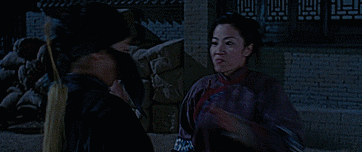
And this:
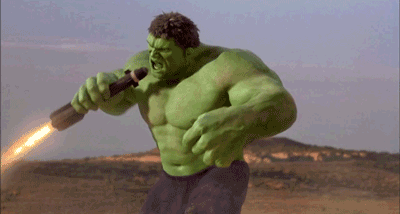
And would give us this:
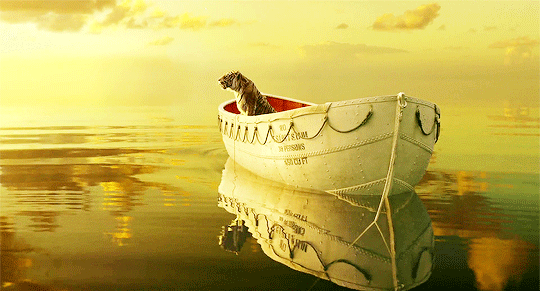
Ang Lee wasn’t originally meant to be the director of the film, as Gus van Sant was signed on to do it. You know, Good Will Hunting, Drugstore Cowboy, that one movie where Una Thurman plays the greatest hitchhiker in the world with giant thumbs, and eventually finds herself meeting multiple people, including Keanu Reeves, Pat Morita (Mr. Miyagi from The Karate Kid), and a group of radicalesbians who like in the Great Plains, coexisting with a group of critically endangered whooping cranes to whom they;’ve fed peyote, while also opposing the intentions of an evil feminine hygiene product company that seeks to take over the land for their factories? YOU KNOW, THAT MOVIE?
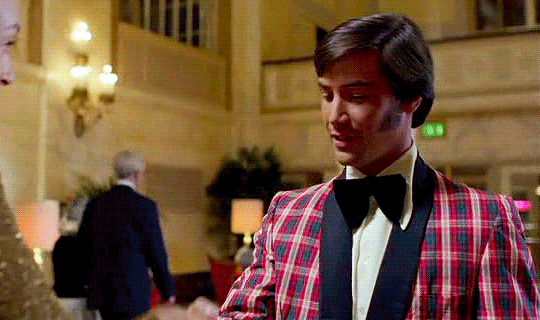
It’s called Even Cowgirls Get the Blues, and I wasn’t even slightly exaggerating with that summary, I SWEAR.
Anyway, he couldn’t do it, and Joel Schumacher also passed on it eventually, so they asked Ang Lee if he’d do it. After CTHD and Hulk, dude was on his way to retire, but after he cried at the end of the script, he accepted the job. AND HISTORY WAS MADE
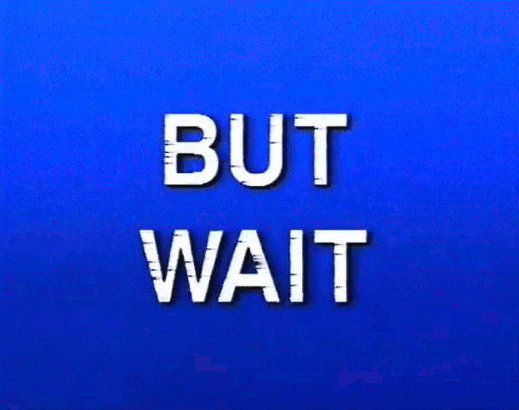
Before I get into it, I should probably frank about something. I’m a cissexual, heterosexual man in a straight relationship with my girlfriend. She says hi, by the way. Here she is, a massive Jake Gyllenhaal fan, getting ready to watch this movie for the first time with me:
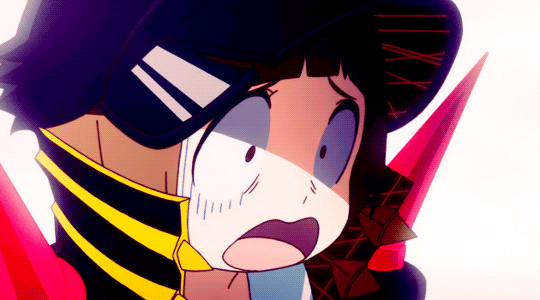
Isn’t she lovely? Anyway, just thought I’d be totally transparent about that. Incidentally, I remember when this film came out, as well as the fervor around it. This was JUST as the gay marriage debate was EXPLODING into the public scene, so this was obviously quite the talking point at the time.
Anyway, shall we find out who’s not going to quit whom? SPOILERS AHEAD!!!
Recap

Cowboys Ennis del Mar (Heath Ledger) and Jack Twist (Jake Gyllenhaal) are waiting outside of a trailer, with Ennis having just arrived on a truck that reminded me of Optimus Prime, and I’m sorry. They’ve been hired by Joe Aguirre (Randy Quaid) to look after a group of sheep and guide them over Brokeback Mountain, a fictional mountain in Wyoming.
The two finally introduce each other, with Ennis seeming considerably closed off as compared to the open Jack Twist. They head to a bar, where the two get to know each other a but better Jack’s an occasional shepherd, but highly involved in rodeos throughout the year. Ennis, meanwhile, is a regular ranchhand at his family’s farm.
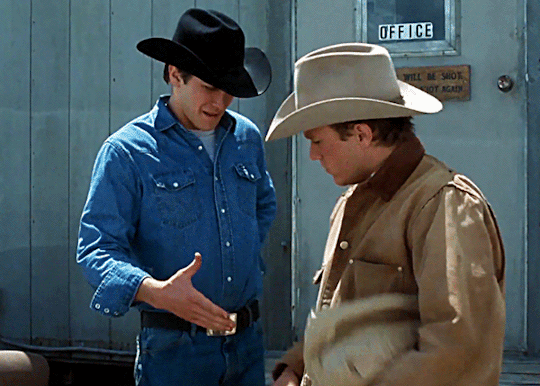
Time for sheep-herding, as the two guide their flock of sheep on horseback, with soft country guitars playing in the background over all of it. And I gotta say, the music combined with the visuals is giving me this real sleepy ambience vibe that I 100% would watch specifically to fall asleep to. Which is not an insult by any means, by the way; it’s just super relaxing.
The two make camp with the sheep in a mountain valley, and now I want to go camping. I realize that it’s February, and I live in a place VERY non-conducive to camping, but GODDAMN this movie makes me want to go camping. In the wilderness, surrounded by bird calls and crisp mountain air, LET’S GO.
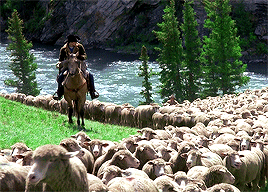
We find out that Ennis is engaged to be wed to a woman named Alma, while Jack is yearning to break free of needing to take jobs like this. And all the while, they’re eating beans, scaring away coyotes, and fending of REALLY REALLY FAT American black bears, who you could really easily scare away without too much difficulty. You ever stared at a bear while both of you were in the woods? I HAVE. And we BOTH took off from each other in opposite directions. They’re not the bravest of animals, black bears. Grizzlies, however, you don’t wanna fuck with.
Anyway, after they face off against that bear and lose their newly bought supplies, they go hunting the next day and take down an elk. Which is a LOT of venison, I tell you what! Oh, and I’m not a hunter, just to be clear, but elk are fuggin’ HUGE. Seriously, XL deer they are.

Anyway, time goes on after that, and they continue to make their way through the mountains. And they get to know each other more, sharing their rodeo experiences and family backgrounds. Ennis also opens up pretty considerably, a fact not missed by Jack. The two become friends.
My girlfriend asks an interesting question: if I had never heard of this movie in any capacity...would I have known the extent of the relationship of Ennis and Jack? And honestly...I’m legitimately not sure at this point. I think I would’ve just assumed that they’d stay close friends, but no further than that. Call that being raised in a society with heterosexual bias towards relationships, or call that me not being a natural shipper. Both are probably accurate, to be honest.
Anyway, it’s getting cold out, and Jack’s sleeping in the tent one night while Ennis is freezing his balls off outside. With Jack’s insistence, he goes inside the tent to sleep next to Jack. And then...

Oh. Well, OK. Again, though, still not sure that at this point I’d...oh wait...OH...OH.
youtube
OK. Think I’d be able to tell at this point what the movie’s about.
So, yeah, they have sex. It’s spontaneous, it’s wild, it’s heat of the moment passion...and it’s REAL awkward the next day, I tell you what. That next evening, Ennis and Jack both insist that they “ain’t queer,” and that this is “a one-shot thing they got goin’.”
Uh, boys? There’s some important evidence to the contrary that we should consider here. But, OK, it’s a different culture, this is super new to you both, I get it. I’m not one to talk on the coming out or discovery experience (again, straight cis dude over here), but I understand that there’s some inherent denial. But still, they continue their relationship as is, for the time being.
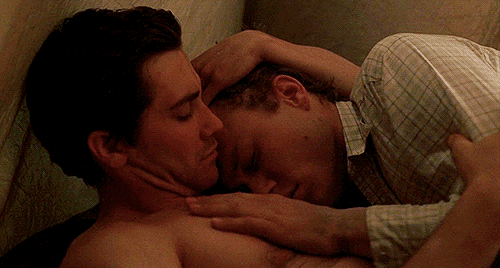
Which is not as private as they thought, as Joe Aguirre observes them chasing each other naked on the mountain from afar. Whoops. Well, it doesn’t matter as much, as they still have a job to do until summer ends. And that job continues. They encounter another herd of sheep that gets tangled up with theirs, snow falls on the mountain and they have to deal with that, etc.
Then one day, the two need to head out. Jack goes to fetch Ennis, who’s moping on a hillside about something. He does this play lasso thing, which seems cute...

...until it turns into a full on brawl right there on the hillside. OK. Well. Some heavy denial going on here, I think, especially on Ennis’ part. Which is somewhat understandable, given the culture, and the fact that Ennis is engaged. Oh, by the way, hello infidelity. GodDAMN IT. Escaped you for TWO MOVIES IN A ROW, and you’re back rearing your ugly head.
Anyway, the job is done soon, and Aguirre’s not exactly happy with them, as they’ve apparently lost some sheep and picked up some from the other herd’s flock accidentally. With a light rebuke from Aguirre, the two part ways with not much else said. Jack asks if Ennis will come back the next summer, and Ennis reminds him that he’s getting married that fall. But as Ennis leaves...
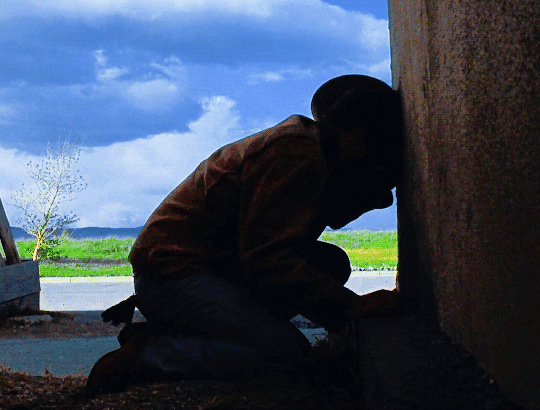
Huh. Interesting reaction, that. Well, in the next scene, Ennis gets married to Alma Beers (Michelle Williams), and they seem to have a very happy relationship. They have two daughters together in a pretty small amount of time. The next summer, Jack tries to get a job with Joe Aguirre once again, but is refused on account of his relationship with Ennis on the mountain...kind of.
See, here’s the thing. Joe rebukes Jack for having their relationship on the mountain, leaving the dogs to babysit the sheep, rather than do the job they were hired for. And, uh...he’s not wrong, honestly. Yeah, OK, there’s definitely some homophobia laced in there, obviously, but they were hired to watch the sheep, and we only really saw them do that once or twice. So, yeah, sorry to say, but Joe’s not entirely unjustified in not rehiring Jack.
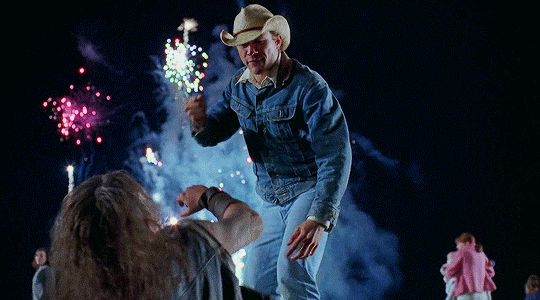
At a Fourth of July festival, Ennis brings his wife and daughters to see the fireworks, when a couple of bikers antagonize the crowd as a whole. This results in Ennis telling them to stop, and a fight takes place, with Ennis IMMEDIATELY taking out the two bikers, with little effort. Anger issues there, Ennis?
Jack returns to the rodeo, with new other options for money. He’s clearly also coming to terms with his own sexuality, as seen when he not so subtly hits on a cowboy at the bar. However, he also meets a young woman, a barrel racer named Lureen Newsome (Anne Hathaway), whom he seems to get along with fairly quickly at a rodeo. They dance together at the bar that night, and, uh...park.
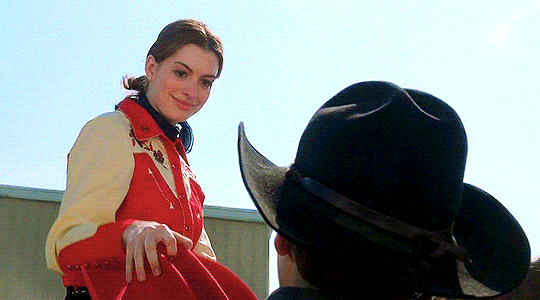
And that, of course, leads to their eventual marriage and parentage as well. Looks like Lureen’s parents arent the biggest fans of Jack, though. Sure that’s going to lead to a healthy relationship down the road.
Been about 4 years since Brokeback Mountain, and this is punctuated by Jack paying a visit to Ennis’ place, which Ennis is told about by Alma. He seems...very anious, waiting nervously for a day to see him. But he finally arrives, and the two embrace happily. And then...

Oh, and Alma sees? Sure, sure, oh, and they go to a motel IMMEDIATELY? Oh, OK, OK, infidelity? Yuuuuuuupyupyupyupyupyup, halfway point? Yeah, sure, see you in Part 2. Geez.
#brokeback mountain#ang lee#annie proulx#heath ledger#jake gyllanhaal#linda cardellini#anna fanart#anne hathaway#michelle williams#randy quaid#ennis del mar#jack twist#jack x ennis#ennis x jack#romance february#user365#365 movie challenge#365 movies 365 days#365 Days 365 Movies#365 movies a year#userfynn#usertom#fyeahmovies#grumpycas
10 notes
·
View notes
Text
Nine Minutes to Midnight
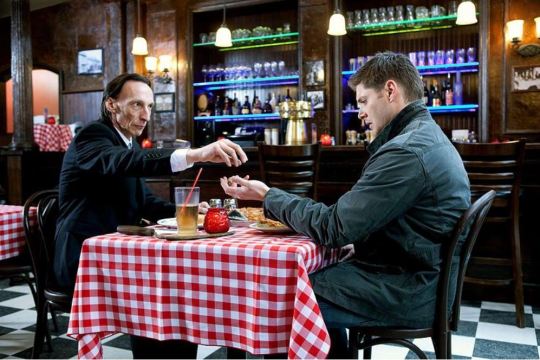
5x21 Two Minutes to Midnight
Nine episodes to beat God, and fifteen years since Kripke pitched his original On The Road fan-fiction meets folk horror.
I’ve had a lot of fun in this little corner of Tumblr SPN fandom, over the eight years I’ve been here. I arrived as a newbie in 2012, and people already here were kind to me. I’ve seen people come and go, get disillusioned with SPN and move onto new fandoms, or arrive latterly into this one, brimming with excitement.
This is a weird social media platform, and I doubt it will be around forever, as one of its joys is how singularly bad it has been at integrating advertising.
Some of my favourite things here have been;
Comments in the tags, often funny, thinky, joyful - love this element of Tumblr.
Coda fic - this short-form story-style, which leaps into the fan-fiction gaps, loud silences and lacunae of the text - what a joy.
All the different roles people take on in fandom, as labours of love - gif makers, fic and meta writers, artists, vidders, archivists, signal-boosters, enthusiastic readers and beta-readers, art-lovers, networkers, collaborators, question-askers and answerers, and participants of all kinds (introvert and extrovert).
Completely unrelated to SPN, posts which are full of puns and hilarity, from “lik the bred” to Brits vs Americans on the subject of drinking tea. I still love Tumblr’s collective sense of humour; it’s witty and charming.
The language of gifs; those delightful comtemporary hieroglyphics of emotive expression.
The diversity - English is the shared language, but gradually it’s apparent that despite US dominance of the site, there are people from all over the world here, whose native tongues range from Russian to Italian to Brazilian Portuguese.
The collective meta experience - sharing “live” textual analysis has been huge fun. Viewing a text in a hive mind this way always shows you something you’d have missed on your own. It’s like holding up a crystal to a thousand lights and watching all the different refractions happening at once.
Again, not SPN specific, but experts in various subjects, from Egyptology to Medieval History suddenly emerging from the depths to provide a passionate and erudite exposition on their topic. Often prefaced with, “My time has come...”
Fandom has a dark side. It can be a coping mechansim, for many, in a healthy or less healthy way. There are unfortunately, always the formation of various “in-groups” and “out-groups”, ship wars, harrassment (of other fans, cast and crew), entitlement, and wild unpleasantness. And, that scourge of the internet in general; performative outrage (otherwise known as the outrage economy) which turns up the dial on provocative statements and negative emotion because that acts as catnip for engagement. A lot of people act out their shadow-selves online, projecting their own internal stuff onto others, from behind the screen.
Almost no media texts get to run as long as SPN (fifteen years) but my first fandom was (and is) Doctor Who and that has been going for over 50. It has some absolutely horrendously toxic spaces and places online, and many of pure joy. My advice is - find the joy.
Stories, by inviting us into the shoes of others, teach us at their (and our) best, the invaluable gift of empathy.
Take care of yourselves. Endings are hard, no doubt.
Special shout-out to fellow LGBTQ+ fans - hold onto your hearts.
It can be complicated loving a story telling its queer (romantic/ erotic) love story implicitly (i.e. in subtext).
Don’t forget (as I always say in my tags) subtext is part of narrative - meaning, the totality of a text contains its explicit and implicit elements; its text and its subtext, just like Metatron (aka Robbie T) told us in 9x18 Metafiction.
I wasn’t in the fandom myself, here on Tumblr, but I saw some of the fall-out from BBC Sherlock S4, and it was particularly distressing to see so many young LGBTQ+ fans feeling deeply hurt and even suicidal, because they’d read all the (extensively crafted) queer subtext in that show as a promise which would, inevitably, lead to an unequivocal queer “coming out” for John and Sherlock.
Those queer fans weren’t “self-queerbaiting” - they were just reading the totality of the text. And after all, why not read the subtext that way, as a promise? Being of a generation who’d already gotten to see many explicitly out queer characters on-screen; why not dare to imagine the subtext was a slow-burn romance with an inevitable “out” climax? Especially because Mark Gatiss (one of the writers) is out and queer himself, young queer fans were even more certain that his Sherlock would be the first “out” queer Sherlock on-screen (The Private Life of Sherlock Holmes, 1970, which Gatiss is on record as being a fan of, had previously queer-coded Holmes, as indeed does Downey’s version, in Sherlock, 2009, and Sherlock 2: A Game of Shadows, 2011.)
Of course, the corporate and production politics were no doubt complex behind the scenes at the BBC, and Gatiss himself (apparently) saw things differently saying (in an interview in Oct 2010):
“No, I don’t think I’d make a kind of gay programme. It’s much more interesting when it’s not about a single issue. And equally, I find flirting with the homoeroticism in Sherlock much more interesting.” (Buzz Magazine Oct 2010: p10).
All of which, is why I’ve been adding a disclaimer to my readings of SPN’s queer subtext for a while now - namely, that reading the subtext doesn’t promise a rainbow of obviousness at the end.
As I said, take care of your hearts, lovelies.
Perhaps we shouldn’t need the narrative closet any longer.
But, we are walking between worlds, an old one and a new, both of them currently existing simultaneously, especially in a globalised world.
Queer audience fractions are, generally, more attuned to queer subtext, because it often uses codes derived from queer culture (although reading cinematic/ television subtext of all kinds is a learned skill, and no one is born with text-reading gaydar). So, whilst queer subtext may appear “loud” to some audience fractions, it remains invisible to others. That is, historically, by design, because, whilst “out” queer characters have gradually emerged on-screen since the 1950s [and the end of the Hays Code in Hollywood] queerness was, and still is (depending on where one is in the world) subject to legal penalty, state censorship or corporate production censorship.
A contemporary kind of state censorship is e.g. in China, where overt LGBTQ+ themes and characters cannot be depicted on-screen (hence, the queer subtext in The Untamed). A contemporary commodity kind of censorship might be e.g. notes from the Network, or TPTB at Marvel Studios with an eye on box-office. Queer subtext has the ability to slip past the censors, or be tolerated by them; because, now you see it/ now you don’t. A character with a straight “surface” reading and a queer subtextual one may (depending on the film/ TV product and its market etc,) be seen to pose less risk as a commercial product, whilst being able to appeal to different audience fractions simultaneously. For example, Captain Marvel (2019) and, as above, BBC Sherlock (2010-2017).
And yes, it’s complicated, because in the midst of that still extant censorship, which queer writers and other creatives on set may indeed be trying to work around by using queer subtext, we can see another world is possible. More out queer stories are being told. And, although we may love to see implicit queerness rather than no queerness at all, and indeed although implicit queerness may (arguably) have the freedom (still) to tell less boundaried or stereotyped stories than explicit queerness (with powerful effects on the audience fractions, both queer and straight, who do “see” it) we can’t deny that it does suit corporate entities, in some cases, to be able to appeal to a dual audience without the perceived “risk” of “outness”. A form of “queer-sploitation” which leads to the charge of “queer-baiting”.
The issue is, perhaps, particularly one surrounding male hero characters in Hollywood (and here in the UK) a) because “queer stories” are (still) often, not seen as likely to have universal appeal for broader audiences, whereas “straight stories” are not framed as “straight stories” but as universal ones, and b) because of the persistence of the prejudiced belief in particular that “queerness” undermines masculinity, especially “heroic” masculinity (here we have diverged markedly from the ancient Greeks). It’s somewhat different for female characters, but that’s another post. Fantasy, in the on-screen medium (if less so in fiction or comics) appears to be a more regressive genre than, say, comedy, in terms of the depiction of “out” queer central (rather than side) characters, with the exception of the Wachowskis’ Sense8 (2015-18) in which pretty much everyone is queer. I know there’s Ruby’ Rose’s Batwoman (2019- ) which I haven’t had a chance to check out yet, and we’ve got some queer Marvel (side) heroes upcoming, apparently; Valkyrie in Thor: Love and Thunder and Phastos in The Eternals - let’s see how that goes.
Moreover, queer subtext doesn’t have an exact analogy i.e. a “straight subtext” equivalent. Yes, many films and TV shows imply romantic/ sexual tension and interest between M/ F (pre)couples before it is “confirmed” they’re into each other in the text. However, because straight is the default assumption, audiences may muse and disagree about the potential for a M/ F romance at the implicit stage (as they have done in SPN fandom re Sam/ Rowena) but they don’t ask - “Does this mean they might be straight ????” It is assumed. Queerness, on the other hand, in order to be widely recognised (rather than solely by the subtext-reading audience fraction) must “come out” in some manner, explicitly, in the text (I don’t mean graphically, but “beyond reasonable doubt”). In other words, as painful as it is, we are not starting on a level playing field. It’s not fair, but it is the deal.
That doesn’t mean we can’t love contemporary queer subtextual stories, just that it’s important to acknowledge it can be painful, for some, to do so, and just as it’s important to acknowlege it’s OK to find them too painful to love, also (historical texts obviously operated under different circumstances).
Queer audiences are not homogenous. We can, and do, see things differently from one another, perhaps particularly across generations.
It is the case however, I think, that the structuring of a story by the narrative closet, as SPN has been structured by the narrative closet (up to this point, mid S15) (by which I mean its queerness is transparent to some, invisible to others, by design) cannot help but remind many queer audience members of our own struggles with the real world closet. Indeed that may make the story attractive, or unattractive, to different folk.
Incidentally, which is why I avoid it, I think the “it’s canon”/ “it’s subtext” debate is a false dichotomy and a bit confusing, as there are two, perfectly legitimate (within their own terms) definitions of “canon”. In the fandom sense, where “canon” means a romantic/ erotic pairing explicitly confirmed in the text, Destiel (meaning romantic/ erotic orientation between Dean and Cas) is not “canon” (as at 15x11). It is implied. Of course, it is explicit text that they care deeply for one another - “You’re my family. I love you, I love all of you” (12x12 Stuck in the Middle with You), “You’re my best friend” (15x09 The Trap). The exact nature of that relationship remains, however, deliberately, ambiguous.
In the literary sense, in which “canon” means “the official body of work”, SPN’s official body of work contains a metric tonne of implicit romantic/ erotic Dean/ Cas, so, it is part of the SPN “canon” in that sense - “subtextual canon” if you like. Although, of course, because implied, therefore open to interpretation.... deliberately transparent to some and invisible to others.
Despite all this complexity, and, indeed despite other elements of the SPN narrative which I have struggled with personally (the early seasons’ misogyny is off the charts sometimes, the brutally insensitive manner of Charlie’s death) I have loved this story, Supernatural, truly, madly, deeply, in large part because of its (implicit) queerness. And for may other reasons additionally, from its folkloric beginnings and dark initial cinematographic palette, to its melodrama, to its, eventual, Ourboros structure, and its Jungian alchemical journey marrying the cosmic to the earthly.
Reading the show without the queer subtext remains possible, but oh boy is that analogous to only considering the above sea-level portion of an iceberg.
I would prefer a rainbow of obviousness at The EndTM, but I don’t expect one. What I expect is continued, deliberate, ambiguity. Something I am sure we will be debating the ethics of, long after.
I could be wrong :-). But I am taking my own advice, and taking care of my heart.
For now, it’s nine minutes to midnight; let’s see how the story ends.
And afterwards, however the chips may fall, the characters will (as this most meta-narrative of seasons has been busy telling us) be set free of “Chuck’s” control. They will belong to us, in a thousand thousand fan-works, for as long as we care to keep on loving them.
#Supernatural#SPN meta#Meta#5x21#Two Minutes to Midnight#Endings are hard#Who am I kidding#Fandom is going to go wild#Whatever happens#The great queerbaiting debate#Reading Subtext#Dean is bisexual#Destiel#Still subtext#But subtext is part of narrative
47 notes
·
View notes
Note
There's a difference between teasing and straight out insulting someone. I'm a med student and the things he has said and done toward Nesta are signs of abuse. I agree that she herself is mentally abusive, however I find it very weird that we were for example supposed to find Wings and Embers super romantic even though the sexual comments to her he made back then and actions have been shown to disgust her on the same pages. If it was anyone else it would be considered sexual harassment. (1/2)
And as a follower of you I am aware that you yourself know mental struggles, which is why I am having a hard time fathoming how you can believe that sending Nesta to the Illyrian mountains is a good idea. If they sent her to some rehab center (I mean they do have nightclubs & lingerie shops, I find it hard to think they don't have health care centers) that would be a different story. But sending her to the IM is like sending a veteran to a still war torn place for them to 'heal'. It's wrong(2/2)
People find different things romantic or sexy. The original question was why do people ship it, not is it abusive or toxic. I suppose some of the subsequent discussion has been about the second question, but that’s not a discussion I want to get into, frankly. I am still firmly of the opinion that people can and should ship what they want, and that it doesn’t have to come up to some standard of “how healthy is your ship?” Like I hate reylo. I laughed out loud when he died because I think he’s a massive asshole and they are pretty much the poster children for a problematic but widely loved ship. But I’d never try to argue with someone that they shouldn’t ship it for X Y Z reasons. It’s not my business.
Re: mental health (y’all know me way too well btw 😂) I don’t think I’ve ever stated that her going to the Illyrian mountains is the right choice? If I have, my mistake. I do think that the intervention was the right choice. And I know I’ve written headcanons about them in the mountains, and fanfic about it, and in this post I alluded to not wanting her to go through the Blood Rite. You’re right, it probably isn’t the best place for her to go, but if I wanted to read about someone with PTSD and substance abuse issues going to therapy, I’d read adult contemporary or literary fiction. Which I do! It would feel super out of place in this world, though. I wouldn’t assume that solutions that exist in our world should be imposed on a high fantasy world.
Again though, re: my mental health, that comment rubbed me the wrong way... I don’t think you meant to be rude, but I think it’s helpful to remember that even if someone has a shared experience, it’s not an identical experience. There is no one “Queer Experience”, just like there isn’t one way to experience mental health problems, or one solution. tbh I am wary of the way that sjm talked about how exercising helped her a lot, it felt like someone who says “just get outside more and you won’t be depressed!” Although I know that’s not what she intended to say? Because she also talked about going to therapy and being on meds and so idk. It would feel weird for her to put a lot of emphasis on the physical, training aspect of Nesta’s healing while neglecting the other aspects that she herself has experienced. But! Different strokes for different folks. I’m getting super off topic in this paragraph, but I feel like I have a very specific experience of mental health problems that doesn’t make me qualified to speak to all experiences, and I don’t want that to be the perception. I have no idea what it’s like to use sex as an unhealthy coping mechanism. I do know what it’s like to use alcohol. Just an example.
Ok final thought about what you said, about her going to the Illyrian mountains - I am wary about it. Like you said, she’s been through literal war and now she’s going to be surrounded by warriors who won’t give a shit about her. (Although, it’s not like she gets along with people who *do* give a shit about her.) But at this point, it feels like something we can’t criticize because we don’t know what it will look like. Maybe they will go and won’t be there long. Maybe the book will include their journey there, and going other places to resolve the rebel conflict, and them leaving, and maybe Nesta will find close friends in the women there. There are a lot of possibilities!
#nessian#acotar#ask#thoughts on characters#nesta#cassian#ahhhh I love all the discussion!!!#is it because you are all social distancing???#anon
24 notes
·
View notes
Text
When women aren’t attractive to men, we call them disgusting: a primer on fujoshi discourse.
This is a very long post. Can I get a summary?
🏳️🌈 "Fujoshi" means "a woman that straight men don't find appealing because she is involved in fandom in a way straight men can’t exploit." That is all it means.
🏳️🌈 The use of fujoshi as a synonym for homophobe is a result of misogyny.
🏳️🌈 Fujoshi are actually less likely to be homophobic than their non-fandom peers.
🏳️🌈 Fujoshi are mostly (70% or more) queer women, not straight women.
🏳️🌈 While attacking your oppressors can be cathartic or empowering, queer women are generally not the oppressors you intend to attack when you say "fujoshi are all evil." Nonetheless, queer women are the people you are attacking.
🏳️🌈 If M/M content made by women is uncomfortable for you to see, for any reason, then you don't have to see it. Many tools for blacklisting content exist specifically to ensure your comfort and safety.
🏳️🌈 Using those tools is more effective than trying to silence women in fandom because those tools are more customizable, and because queer media can and should be available to all people who want it.
🏳️🌈 Criticism and hatred are not synonymous.
🏳️🌈 Women are capable of creating and consuming art just as well as their male peers.
🏳️🌈 Queer men are not a unanimous front, and do not universally feel that M/M content written by women should be banned.
🏳️🌈 Women's sexuality is reviled throughout western society. Some women choose to reclaim the vocabulary used to harm them.
🏳️🌈 Women make plenty of non-M/M fan content, which should not and cannot be ignored when discussing women's contributions to fandom and art.
🏳️🌈 You're not obligated to like these things, but you shouldn't use your dislike as an excuse to be hateful.
🏳️🌈 If you have more questions, you can ask me them, but I will not be kind to people who do not respect me when asking me things.
What is a fujoshi?
A woman whose engagement with fandom makes her unattractive to straight men. Nothing more, and nothing less.
Just a woman whose enjoyment of media makes straight men react negatively to her.
A “fake gamer girl,” of sorts, though the "fujoshi” applies primarily to animation fandoms.
Many women self-describe as fujoshi as a point of pride, because women don’t exist for male consumption anyway.
Why do people keep saying fujoshi are bad/evil/homophobic/etc?
Because hating women is a fundamental tenet of many modern societies, and the use of a non-English term allows misogynists to obfuscate their hatred of women, so that they can engage in misogyny while still looking openly progressive.
In particular, queer people who have been harmed by cisheteronormative society see women in fandom as an ideal target for harassment, because they have relatively little social power to fight back, but can be easily painted as violent and oppressive.
But I heard fujoshi exploit and sexually abuse real life gay men?
Those people are called “sexual harassers” and “homophobes,” and while they exist within fujoshi groups, they also exist everywhere else, and usually at a higher rate.
However, “fujoshi” doesn’t mean “sexual harasser.” It means “woman who is unappealing to straight men because of her fandom.”
Well, aren’t fujoshi all cis and straight? So, looking at queer stuff is inherently exploitative.
There’s two issues with that belief. First, queer media is not media that should be restricted.
By saying queer media should only be engaged with by people who are queer in the exact same was as depicted, you deny questioning people access to information, and deny actual cis/straight people important empathy building opportunities.
Because fictional characters aren’t real, and thus cannot be hurt by straight people, they make especially helpful teaching tools. If a straight person gets confused or upset and says something harmful about a fictional character, there is no direct, real world victim. This gives straight people to opportunity to learn and better themselves before interacting with real queer people.
Queer fiction keeps queer people safer by offering an introductory course in “how to not be a bigot” to straight people. And, as much as we might prefer that straight people just stop being bigots, that’s not going to happen without information, experience, and exposure.
Making queer media inaccessibly has always been a primary tool of open queerphobes, because it makes queer people feel inhuman to ourselves and others. Making queer media inaccessible means making sure that even cis/straight people who would otherwise ally with queer people don’t understand our needs, or even our existence at all, and those inadvertently support our oppression.
Second, most fujoshi are queer, whether by orientation or by gender. And by most, I mean roughly 3/4 fujoshi are queer in some way.
But I enjoy making fun of fujoshi! It makes me feel better about myself as a queer person who has been persecuted before!
You can simply replace “fujoshi” with “homophobes” in your posts and discussions, and it will be more accurate while still giving you the power trip of lashing out against an abusive system.
When you say fujoshi are responsible for hurting you, you’re actually saying “queer female artists are the reason I am oppressed.” It’s simply untrue, and it also discourages coalition building, which prevents queer people from building truly safe spaces and fighting effectively against cisheteronormativity. It is, in effect, the “divide” part of “divide and conquer.”
Also, you should also consider, where possible, seeking professional help in processing your feelings of powerlessness, as lashing out in this way is often a sign of trauma, and you deserve to be mentally healthy.
Obviously this isn’t possible for everyone, and as queer people, we are especially unlikely to have access to mental health resources. But, attacking other queer people is not an especially great way to assert our power over the social systems that have abused us.
But the stories and art that fujoshi make are uncomfortable for me to read! I don’t like seeing them!
I have an exercise for you. It will help you to exert power over your surroundings, reduce your stress levels, and ultimately allow you to lead a healthier and happier life.
Ignoring things you find uncomfortable is hard. It is often impossible, particularly if you are, as so many queer people are, dealing with trauma.
But avoiding them is very simple in most cases. Utilize blacklist functions on sites such as tumblr, and search removal functions on sites such as AO3.
For information on how to blacklist, go here.
For information on search result removal, go here.
Why should I have to do that? Shouldn’t fujoshi stop doing things that make me uncomfortable, instead?
If we buy into the idea that everyone should stop making any content that makes another person uncomfortable, there would be literally nothing made, ever again. Someone is always uncomfortable. I, personally, have a PTSD trigger related to a common household appliance that was used to physically abuse me: the oven.
If we banned all use of ovens in all media, almost nothing other than a small amount of news shows would exist, and only until there’s an oven manufacturing recall.
More importantly, racists, homophobes, transphobes, etc are made uncomfortable by the simple existence of queer people and people of color and other marginalized groups. The argument that all art and all content should be comfortable for all people means that anything which shows the existence of, say, a brown trans person such as myself cannot exist.
In contrast, if we make the individual responsible for their own comfort, that means the proliferation of tools such as blacklists that are infinitely customizable, leaving people such as myself able to block out all mention of ovens without needing to worry about disabled people who rely on baking their meals because they lack the muscle control to fry things on a stovetop being denied access to important information.
Isn’t being critical of media you engage with important though? For progessivism and leftism and stuff?
Being critical is important. Be aware of the flaws in media, understand its implications.
But being outright censorious is counterproductive.
Being “critical” should not mean “being hateful towards.” That is a misuse of criticism that is propagated by abusers to make their abuse of others seem acceptable.
In the same way that “gender critical” tends to mean “hateful of trans people” rather than “rightfully suspicious of the white, western gender binary and the ways it oppresses people,” “media critical” is often used as an excuse to engage in blatant hatred while pretending to be thoughtful.
Even if you personally don’t mean “critical” as a disguise for abuse, the vast majority of the media-critical people who pass on this hatred of women in fandom do mean it as a disguise for abuse.
Being critical is important, but being critical and being hateful are not the same.
But since fujoshi are women, they can never understand what it’s like to be MLM ,and I don’t want them to ruin the concept!
This assumes that women are incapable of understanding the experiences of men. Remember, most fujoshi are queer, so “queerness” and even “same gender attraction” are already things they experience personally.
The only salient difference between a bi woman who writes about the main couple in Yuuri on Ice and a bi man who writes about the main couple in Yuuri on Ice is that the woman is a woman.
It also assumes that all genderqueer people have completely static genders, and no experiences that they could ever consider belonging to another gender.
As many trans people who realized they were trans later in life will tell you, this is fundamentally untrue. Some trans women are drawn to M/M content because they once considered themselves men, even after they recognize their womanhood. Some trans men are drawn to M/M content even before they realize they are men, because there is an appeal to relationships that don’t involve women, as they are not women. Some genderqueer people enjoy M/M content because they have dysphoria relating to female sexuality. Some nonbinary people enjoy MLM content because they prefer to see bodies like their own represented in erotic fiction.
To assume that fujoshi are incapable of understanding or engaging with M/M fiction is to assume that women are incapable of the emotional and intellectual abilities of men, and that trans people simply don’t exist.
Well, okay, but what about all the MLM who say fujoshi are bad?
What about all the MLM who say fujoshi are good?
The fact that there are queer men on both sides of this discussion suggests that other things need to be taken into consideration when making your decision on women in fandom.
But, sometimes fujoshi say things like, “being gay is a sin,” and that’s really horrible!
Actually, these women are saying that their own sexuality is considered a sin, which is an accurate statement. The prevailing powers in our societies hate female sexual expression with an immense passion. Female sexuality is opposed by many major religious groups, functionally all conservative governments, and anyone who has ever called a woman a slut/whore/prude/frigid bitch/etc because of the way she engages with her sexuality.
In playfully describing themselves as being sinful, these women are robbing bigots of the ability to hurt them by making the same claim genuinely.
Even if it were the case that these women are claiming being queer is a sin, as most of them are queer anyway, it would still be a reference to themselves, and thus an act of reclamation.
You may have heard people respond to being told to “go to hell” that if hell exists, it’ll be better than a heaven full of homophobic douchebags, or with phrases like “there’s a throne waiting for me,” or even simply saying “thank you.”
An extremely similar rhetorical mechanism is at play, where people reclaim the words that are being used to oppress them, and turn them into self empowerment.
In the comparatively rare cases when women in fandom are genuinely homophobic towards real men, other women in fandom tend to react negatively to that and re-educate those homophobes. This is because, again, fujoshi are primarily queer.
If fujoshi are all queer women or whatever, why don’t they make F/F content instead?
There’s a few answers to that.
The first is that they do actually make F/F content. Quite a lot of it. The majority of fic writers and fanartists in all major fandoms are (queer) women. This includes fandoms where the bulk of content is not M/M like My Little Pony, Sailor Moon, Madoka Magica, Steven Universe, and so on.
(Edit note: as absurd as this is about to sound, I forgot fimfiction exists. When factoring for specialized archives like it and eqd, the majority of mlp creators are indeed men)
The second is that, mathematically, there are simply more male characters with more canon content to draw off of as a basis for fan exploration than there are women. More characters and more screentime means more detailed characterization, and thus, more fan content.
The third is that many women, particularly those with dysphoria and those with sexual trauma, have difficulty engaging with female characters as sexual and romantic objects. While it can be beneficial to re-integrate one’s sexuality with one’s own body, everyone who would benefit from that kind of thing needs to approach it on their own time in on their own terms: being able to control the situation is what prevents self-harm. Trying to force these women to explore female sexuality can be anywhere from uncomfortable to lethal, depending on the severity of the trauma.
Well I don’t like it!
That’s alright. You don’t have to like it. You simply have to respect that women exist, and are allowed to enjoy fiction the same way men are allowed to do so.
If you don’t want to see it, then there are tools that will enable you to avoid it. Everyone has their likes, dislikes, and hardline rejections.
I have other questions you didn’t even start to address here!!!!!!!!
Well, alright, I’m willing to talk about this subject in more detail, as long as you’re willing to be polite about it.
My ask box is open to you.
However, if you are simply going to come and claim yell that I’m a homophobe who hates gay men and/or myself, then I’m just going to make fun of you, so please try to be nice.
500 notes
·
View notes
Text
Anjali Valentine, CA
1) I'm probably in the anomaly when I say this, but my healthcare experience has been quite positive, actually as someone who's LGBT-identifying. (I'm bisexual). I didn't really come out (I don't count being outed) until I was 17-18 years old, and I didn't publicly come out (on social media) until I was about 19. When I first started realizing I was bisexual, I was in a relationship with a guy, so it never really occurred to me that my healthcare might be differently impacted by being bi. When I was single and in LA, (and I hope this comes off right through text) I'd say I was open to the possibility of sexual experimentation with girls and definitely was attracted to some, but got really turned off towards the idea because I was constantly being pressured by male partners to be with girls for their pleasure.
That said, I had an amazing doctor at UCLA (also an OB-GYN) who was really well versed and non-judgmental about having LGBT patients. I told her I was bisexual and she instantly told me about how most STI tests were very geared around assuming patients were sexually active with the opposite sex, and that she could order panels for certain STI's that were often overlooked for people attracted to the same sex. HIV testing was part of the STI test panel regardless, but you didn't get tested for things like trichomoniasis.
UCLA also had an LGBT resource center that was fantastic, especially with offering meetings and events to discuss queer sex education. They offered dental dams, female condoms, regular condoms, and pamphlets on resources available for queer issues (even ones not related to sex education). I would definitely have to say that I was the most comfortable in my sexuality while living in Los Angeles in just about every facet - I could be open about it with my professors, peers, healthcare providers (including my therapist), the campus assault advocates, and so on.
2) The healthcare system needs to be reformed in more ways than just the medical field. It needs to be an all around effort to raise awareness about LGBTQIA+ identifying people and it also needs to have separation of church and state. Right now, tons of states still fund abstinence-only sex education because of a heavily influenced Christian agenda about premarital sex being a sin and whatnot. If we can't even discuss contraception/protection for heterosexual people, then there's no chance we can even begin to discuss what it means to have a healthy sex life as a queer-identifying person. Sex education is simply not current anymore, either. Right now, we're at the lowest birth rate we've had possibly ever because most millennials are deciding not to have children for a multitude of reasons. Sex education is still heavily centered around preventing an unplanned pregnancy (the agenda to end teen pregnancy was really big when I was growing up with shows like Secret Life of the American Teenager) but not nearly enough focus is given to preventing STI's (unless you want to show graphic pictures of what STI's look like as a scare tactic to young, impressionable adolescents). Most kids learned about sex because of scare tactics in their sex education classes, not because of a healthy and open conversation to answer any questions they might have. On that note about STI's, most people I know still never get tested because of the stigma surrounding having an STI in general. (The other common barrier is financial limitations, which I will address later on).
It's also worth mentioning that in many areas, it's still an option for parents to opt their kids out of taking sex education to begin with because they think the information will make their kids more interested in sex (god forbid) or that it's evil in some way. I also think that gym teachers shouldn't be the ones to teach sex ed classes, it should be people actually educated beyond basics (such as Planned Parenthood staff).
I think the majority of the issues surrounding LGBT healthcare have to do with ignorance of LGBT people in general. The movie Philadelphia, with Tom Hanks and Denzel Washington illustrates this beautifully because it came out during the height of the AIDS epidemic and shows attitudes towards people afflicted with AIDS - even highlighting the social death AIDS-afflicted people often face because of misinformation about the disease. If you check out a documentary called United in Anger, it's about a group that formed in New York City called Act Up (AIDS Coalition To Unleash Power) to raise awareness about people with AIDS (this is also the group that went to the White House lawn and scattered loved ones ashes who had died from AIDS as a message to former President Reagan for never addressing AIDS once in his presidency). One of the biggest barriers to tackling LGBT related healthcare issues is the lack of accessibility to drugs to treat HIV, one being AZT and a new one called PrEP+ that just came out. (AZT helps prolong the lives of people already afflicted with HIV so it doesn't progress to AIDS, and PrEP+ is a drug to protect people more vulnerable to being given HIV from someone else to help their body develop immunity). Most people afflicted with the illness are already marginalized in so many ways that being able to afford a potentially life-saving drug is simply not possible. This is also reflective of a larger issue within American healthcare, which is the constant refusal from our government to implement universal healthcare.
3) I'd say I'm pretty satisfied with the level of care I get, but that said, I also know I speak from a position of privilege by having access to quality health insurance and an amazing doctor who works at an LGBT-friendly clinic here in Salt Lake City. I'm also in a relationship with a man, as opposed to someone female or non-binary, which often doesn't make my sexuality obvious to people.
4) I really don't think most medical professionals are educated on LGBTQIA+ related issues. This is also pretty reflective of a lot of larger issues within medicine, such as how most doctors appointments are done on a time crunch, which doesn't allow for much trust to be built with a patient. There's also so much to tackle within intersectional identities in patients, such as racism, sexism, sexual orientation, and so on. A lot of beliefs are still pretty heavily ingrained such as POC having a higher pain tolerance, women often being written off as hysterical or overdramatic when they talk about pain, and so on. It also doesn't help that medicine is still such a white male dominant field, and I've had friends from more marginalized populations who try to be a change in the system only to be bullied out of their pre-med classes, or face discrimination from professors, and so on.
5) I don't have any other thoughts for now, but I'm def gonna send more your way if they come up! I could honestly talk about this forever because of all the intricacies and nuances that accompany any kind of marginalized identity, but I don't think they'd make a whole lot of sense in an email.
Name: Anjali Valentine
Pronouns: She/Her/Hers
Something unique about me: I love to dance and perform! I take voice lessons and train in urban and hip hop, jazz, tap, heels/burlesque, and a little bit of ballet. I want to be in the entertainment industry as either a cast member for Saturday Night Live, or on Broadway (or some kind of theatrical equivalent in another city). I also love to do photography!
0 notes